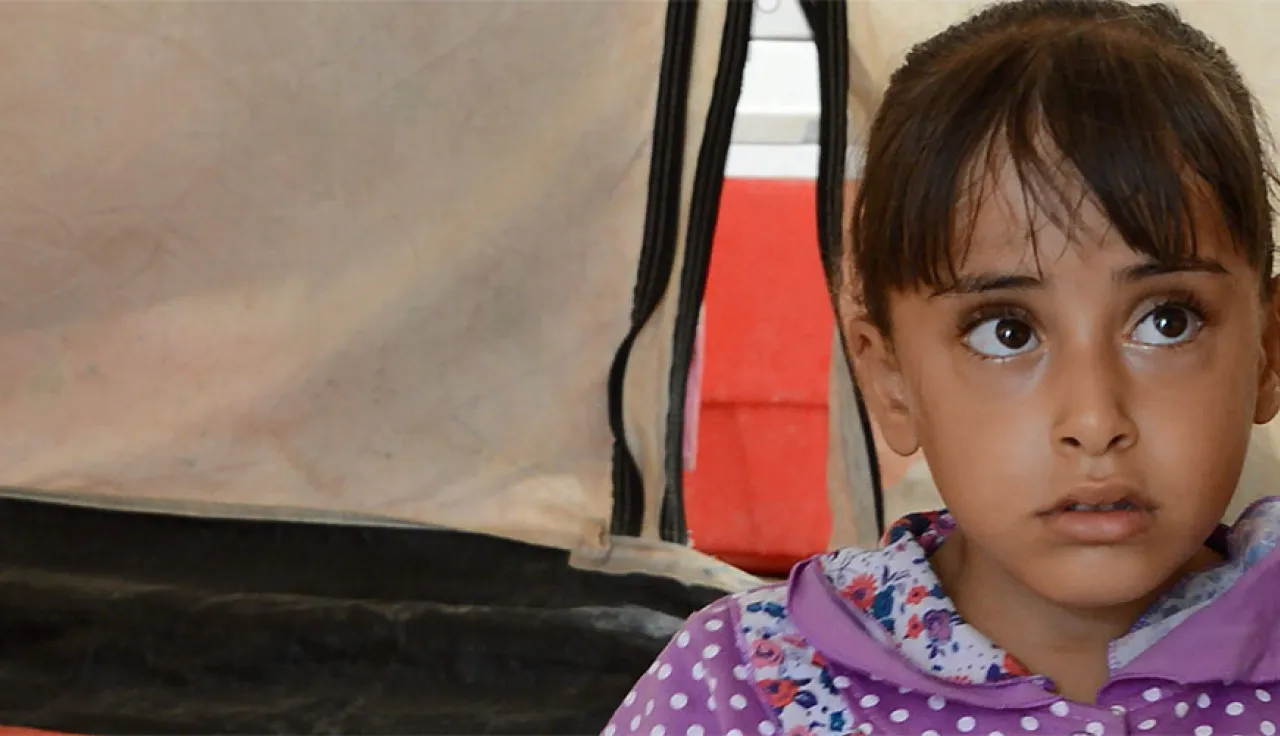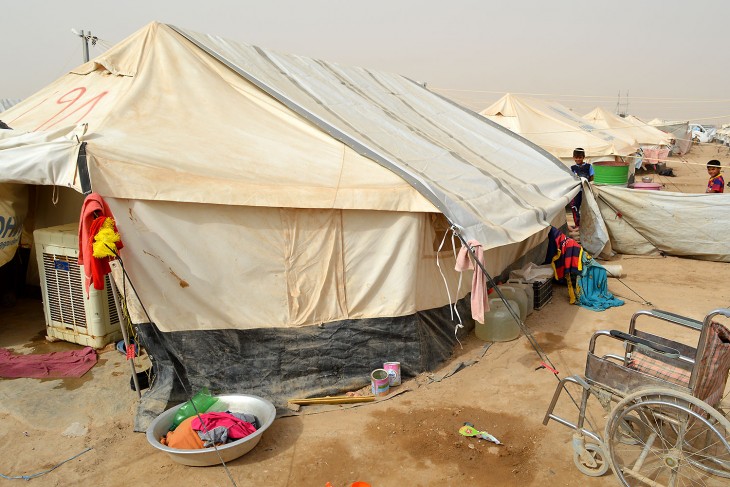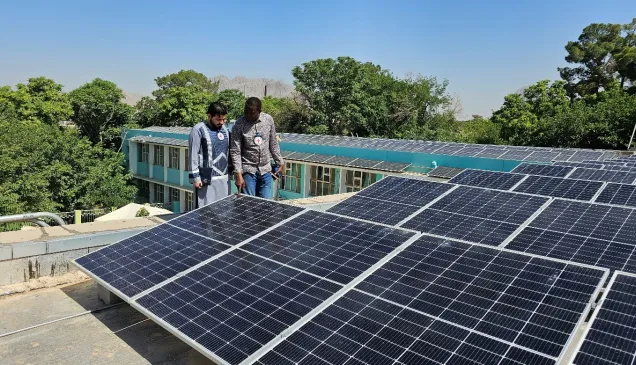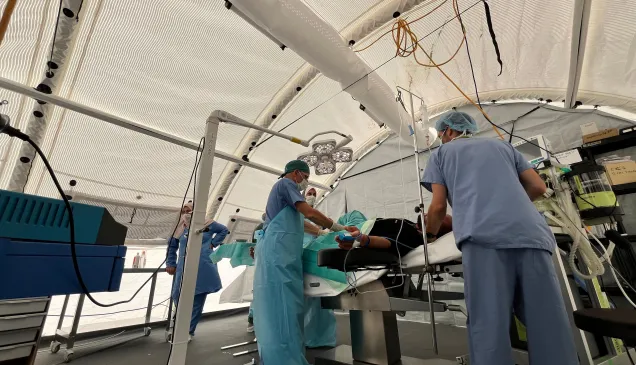Iraq: Disabled and displaced

Rusul, a seven-year-old girl from Ramadi, has been paralyzed since shortly after birth owing to faulty surgery. The intervention, near her spine, failed to cure a serious skin infection and instead left her without feeling.
"It is very hard to move her left or right," said Abu Rusul, who had adopted Rusul following the loss of both of the baby girl's biological parents. After the two had fled to a makeshift displacement camp in Amiriyat Al-Fallujah, it was very difficult for Rusul to receive physical rehabilitation or other treatment. "I have done everything I can to provide her with the treatment she needs, but it is very expensive," Abu Rusul commented.
Offers of help from the ICRC
ICRC staff met Rusul during an assessment visit to camps in the area. Rusul would not talk, but her eyes conveyed the bodily pain that she was experiencing. Despite the outward silence, there was a loud internal cry for help.
"Tell me something," pleaded Amro Ibrahim, the ICRC staff member who had first come across Rusul in Anbar. "Say anything!" he tried again; but Rusul would not utter a word. Abu Rusul shrugged and indicated that Rusul's passivity was longstanding.
Weeks later, the ICRC delivered a wheelchair to Rusul, hoping that it would cheer her up a little and help her adoptive father cope with moving her around. Moreover, the ICRC offered to cover the costs of Rusul's treatment at one of the five physical rehabilitation centres that it supports in Baghdad.
An epidemic of silent suffering
There are tens of thousands of Rusuls throughout Iraq today. They live in silent suffering day in and day out. They have been robbed of their childhood by war, politics, and poverty. They do not go to school or play outdoors. They do not wear new clothes on holidays. They do not live in a safe environment. They are highly vulnerable to sexual violence. They do not have clean drinking water. They do not eat proper food so do not develop fully.
So it should not be surprising that Rusul does not say anything. When a child is deprived of so much, why should she feel like laughing, or even talking?

The displacement camp in Amiriyat Al-Fallujah, where Rusul is living. / CC BY-NC-ND/ICRC



